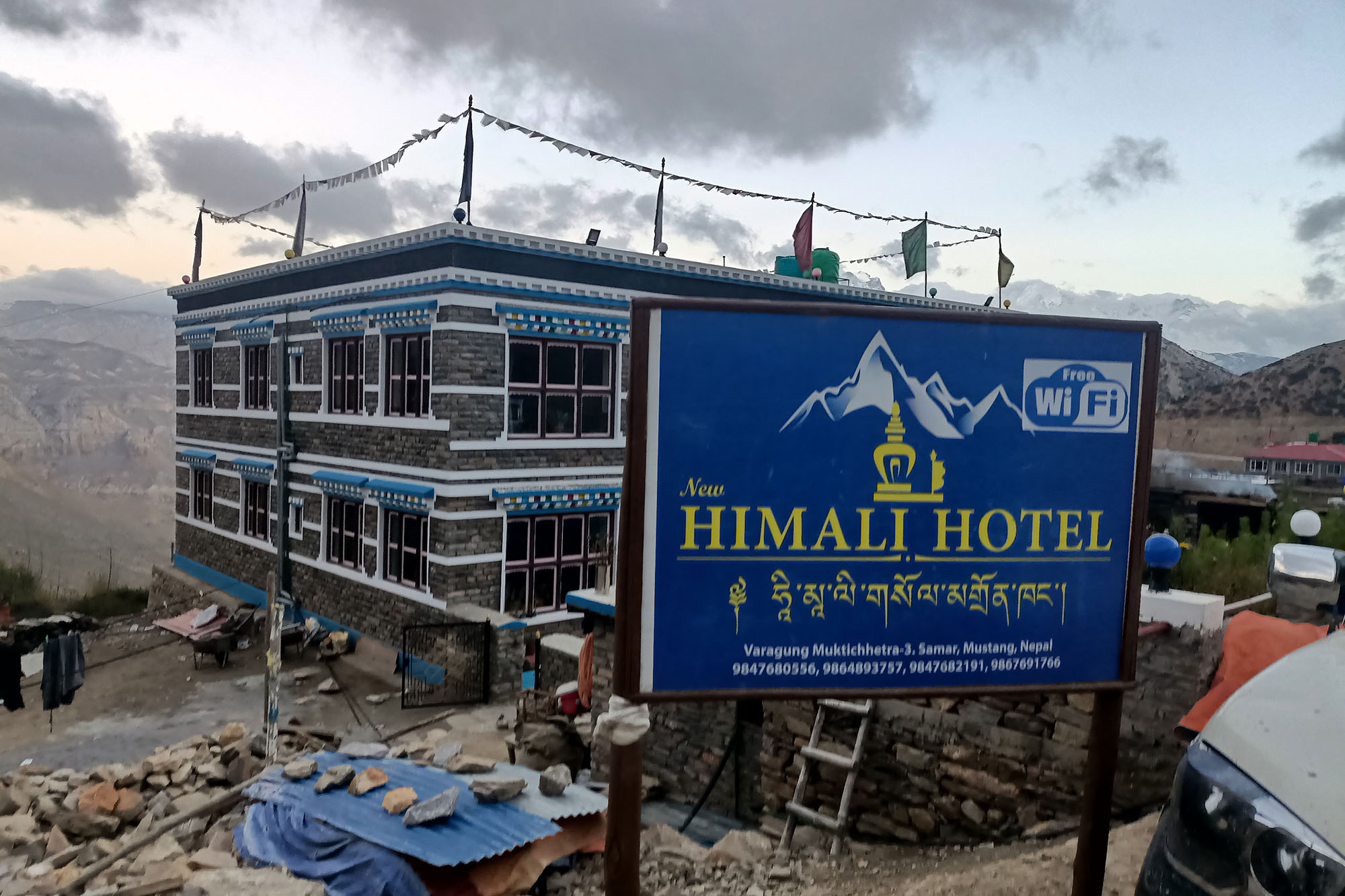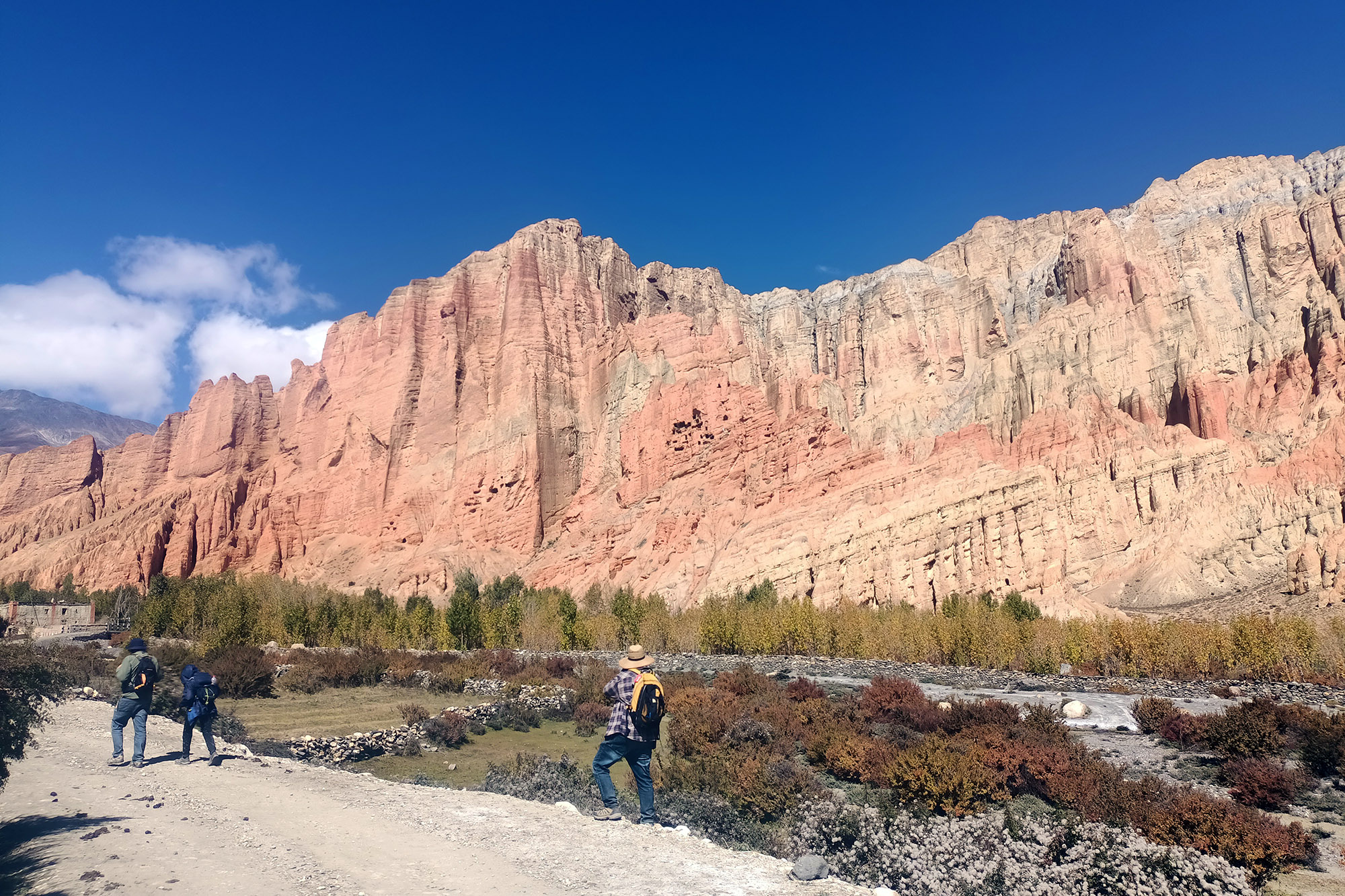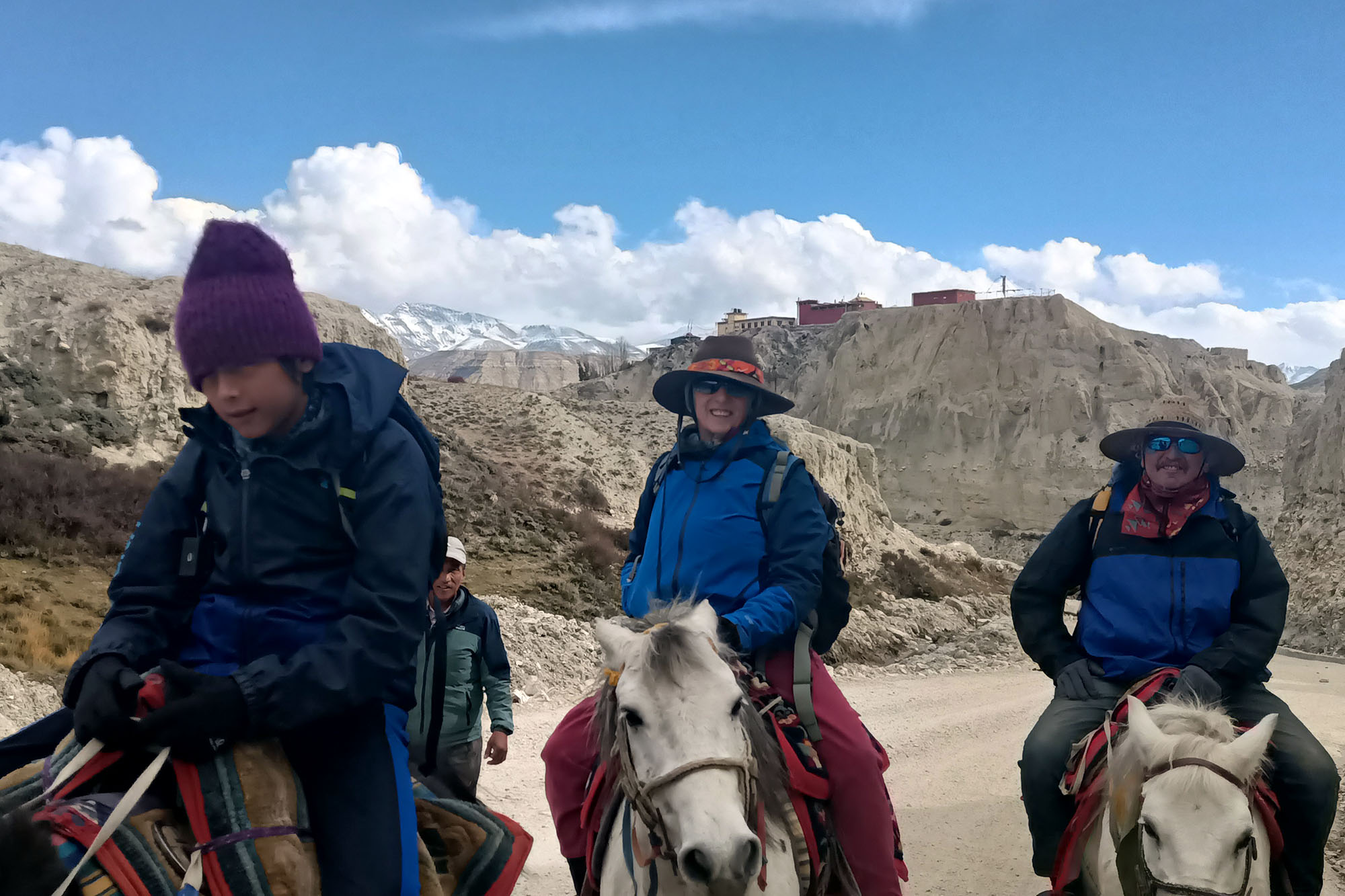As you prepare for this unforgettable journey, it’s crucial to understand the challenges that await you amidst the awe-inspiring landscapes of Upper Mustang. Here are some key obstacles that you may encounter:
Altitude Acclimatization: The Upper Mustang Trek takes you to altitudes ranging from 2,800 meters (9,186 feet) to over 4,000 meters (13,123 feet)..Altitude sickness can range from moderate symptoms like headaches and nausea to more serious illnesses if not managed appropriately. Adaptation to high altitude is essential to avoid altitude sickness.
Remote Terrain: Trekking through Upper Mustang means navigating remote and rugged terrain, often with limited access to facilities and amenities. you must be prepared for long stretches without basic comforts like electricity and running water.

Limited Accommodation: Accommodation options along the trail are sparse, particularly in the more remote villages. you should expect basic teahouses and guesthouses with simple amenities. It’s advisable to book accommodation in advance during peak trekking seasons.
Variable Weather Conditions: The weather in Upper Mustang can be unpredictable, with temperatures fluctuating dramatically throughout the day. you may encounter harsh winds, sudden rain showers, and even snow at higher elevations. Proper gear for varying weather conditions is essential.
Permit Restrictions: Upper Mustang is a restricted area, and you need a special permit to enter. Obtaining permits can be a bureaucratic process, requiring advance planning and coordination with authorized trekking agencies.

Limited Communication: Communication networks are unreliable in Upper Mustang, particularly in remote areas. you should not depend solely on mobile phones for navigation or emergencies. Carrying alternative communication devices such as satellite phones or emergency beacons is advisable.
Physical Endurance: The trek involves long days of walking, often on challenging terrain. you should be in good physical condition and prepared for several hours of hiking each day. Regular exercise and cardiovascular training can help build endurance before the trek.
Cultural Sensitivity: Upper Mustang is home to a vibrant Tibetan Buddhist culture, and you must show respect for local customs and traditions. This includes adhering to dress codes at religious sites, seeking permission before taking photographs, and refraining from behavior that may offend local residents.
Limited Food Options: Food choices along the trekking route are limited, with most teahouses offering basic meals such as dal bhat (rice and lentils), noodles, and soups. you with dietary restrictions or special dietary preferences should carry their own snacks and provisions.

Environmental Conservation: As with any trekking adventure, it’s essential to minimize your environmental impact. Leave no trace principles apply in Upper Mustang, where fragile ecosystems and cultural heritage sites must be preserved for future generations.
By understanding and preparing for these challenges, you can start Upper Mustang Trek with confidence, ready to immerse yourself in the awe-inspiring beauty and rich cultural heritage of this remarkable region.

